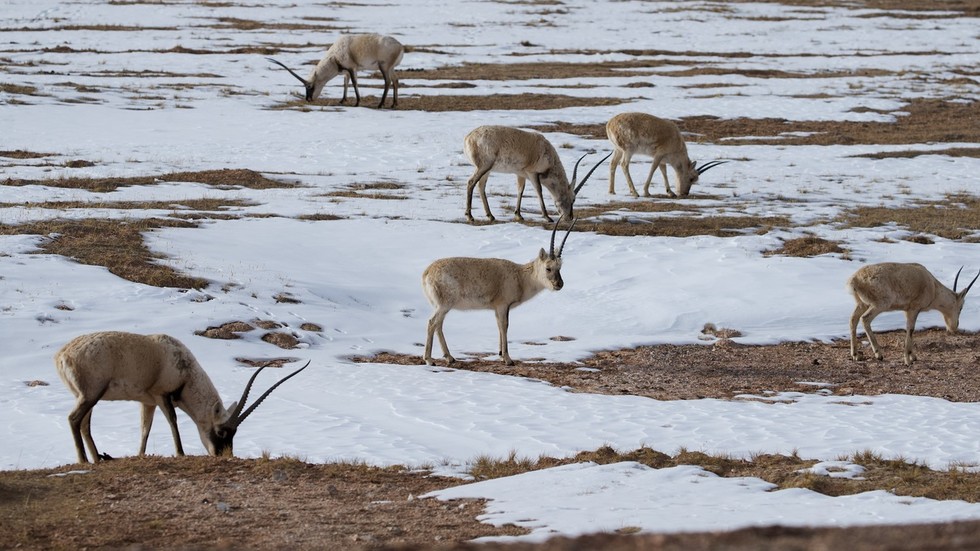
A British man who perished in an accident in Antarctica in 1959 has been discovered (Image: Getty)
The remains of a 25-year-old British man who fell into a crevasse while working in Antarctica in 1959 have been discovered, 65 years later. The bones were found in a melting glacier in January by a Polish Antarctic expedition, alongside some 200 personal items including a wristwatch, radio equipment, a Swedish Mora knife, ski poles and a pipe.
DNA has now formally identified him as Dennis "Tink" Bell, who worked for the Falkland Islands Dependencies Survey (FIDS), which later became the British Antarctic Survey. Dennis died on a glacier at Admiralty Bay on King George Island, off the Antarctic Peninsula, on July 26, 1959. His siblings, David, 86, and Valerie Kelly, had long given up any hopes of finding him. David, now living in Australia, said: “When my sister Valerie and I were notified that our brother Dennis had been found after 66 years, we were shocked and amazed. The British Antarctic Survey and British Antarctic Monument Trust have been a tremendous support and together with the sensitivity of the Polish team in bringing him home have helped us come to terms with the tragic loss of our brilliant brother.”

Dennis, left, died on a glacier at Admiralty Bay on King George Island, off the Antarctic Peninsula, on July 26, 1959 (Image: British Antarctic Survey)
It was David who answered the door in his family home in Harrow, London, to learn of the accident in 1959: "The telegram boy said, 'I'm sorry to tell you, but this is bad news'," he told the BBC. He then went upstairs to tell his parents. "It was a horrendous moment."
Dennis' remains were carried to the Falkland Islands on the BAS Royal Research Ship Sir David Attenborough and handed into the care of His Majesty’s Coroner for British Antarctic Territory, Malcolm Simmons, who accompanied them on the journey from Stanley to London, supported by the Royal Air Force.
Denise Syndercombe Court, a Professor of Forensic Genetics at King’s College London, then sent the remains for DNA testing. She has now confirmed that samples from his brother David Bell and his sister Valerie Kelly match. They are "more than one billion times" more likely to be related than not.
Professor Dame Jane Francis, Director of BAS said: "The confirmation of the remains found on Ecology Glacier as those of Dennis ‘Tink’ Bell is both a poignant and profound moment for all of us at British Antarctic Survey. Dennis was one of the many brave FIDS personnel who contributed to the early science and exploration of Antarctica under extraordinarily harsh conditions. Even though he was lost in 1959, his memory lived on among colleagues and in the legacy of polar research.

Dennis Bell died near Point Thomas in Admiralty Bay (Image: MAGIC, BAS )
"This discovery brings closure to a decades-long mystery and reminds us of the human stories embedded in the history of Antarctic science.”
On that tragic day, in the depths of the austral winter, Dennis set out from the base to climb the glacier leading to the ice plateau to carry out a survey and geological work, alongside surveyor Jeff Stokes, meteorologist Ken Gibson, geologist Colin Barton and two dog sledges.
Ascending the glacier, Dennis and Jeff negotiated a crevassed area and then believed that they were in the clear. However, deep snow made the ascent difficult, and the dogs faltered. To encourage them, Dennis went on ahead, but without his skis. Suddenly, he disappeared, leaving a gaping hole in the crevasse bridge through which he had fallen.
While Jeff and the dogs initially pulled him from the cravass via a 100-foot rope, as he reached the top, the belt to which Dennis had attached the rope broke, and he fell down again. This time, there was no reply to Jeff's calls. It was a further 12 hours before the three remaining men found the site again, "and there was no way he could have survived," Ken recalled. Bell Point on King George Island is named for Dennis Bell.
The family will now decide how to mark Dennis’s memory.
Invalid email
We use your sign-up to provide content in ways you've consented to and to improve our understanding of you. This may include adverts from us and 3rd parties based on our understanding. You can unsubscribe at any time. Read our Privacy Policy

 2 days ago
2
2 days ago
2










 English (US) ·
English (US) ·